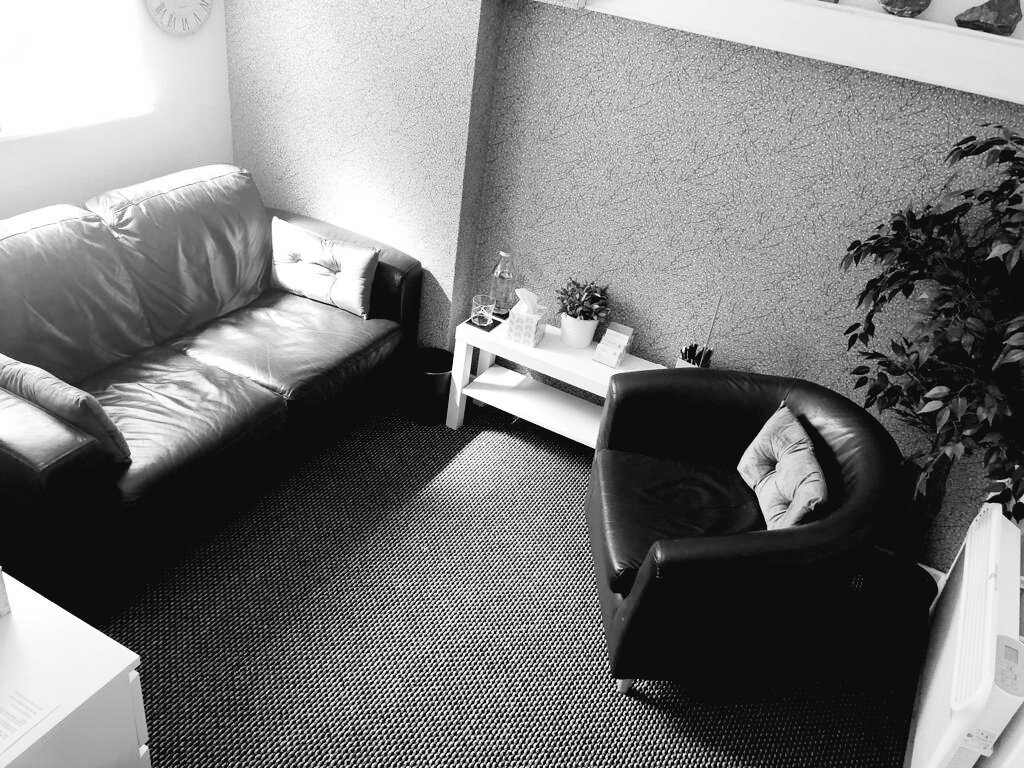
Counselling
Why people seek counselling:
Counselling is sought by many people of all ages, with different experiences and from diverse backgrounds and cultures.
Life is not always easy and can be very confusing at times. We can experience many significant experiences that leave us feeling emotionally vulnerable and struggling to make sense of our thoughts, feelings and actions.
What can I expect from counselling?
People are often unclear what happens during counselling. It is an experience which is supportive and non-judgmental. It will allow you to explore the issues affecting you in a safe environment.
It empowers you to find solutions and make judgments about your own problems in a safe environment.
It provides an opportunity to improve your self-awareness and internal resources. You will be encouraged to talk about what is troubling you. Talking through your concerns will lead to a much better quality of life. The aim is to work with you, to enable you to become clearer about the extent of the issue or problem and how it may affect you.
Counselling can support you in recognising a way forward, empowering you to make positive changes in your life.
However, you do not have to be in crisis or on the verge of one, before choosing to have counselling. You may be experiencing underlying feelings of dissatisfaction with life in general, or be seeking balance in your life and spirituality. All of these reasons and more will bring individuals to therapy.
Counselling can help with:
Anxiety Physical, sexual and emotional abuse
Depression Obsessive compulsive disorder (OCD)
Anger Addiction – drugs, alcohol, food, spending, gambling
Self-Esteem Isolation and loneliness
Bullying Low self-confidence
Stress Personality and identity issues
Conflicts Attachment issues & Post Traumatic Stress (PTSD)
Walk and talk counselling:
As we are based near Sutton Park, most of the park is a National Nature Reserve and is one of the largest urban parks in Europe. We see some individuals for ongoing weekly counselling in the park which has seven lakes, wetlands and marshes. Although there is access here for the public there is areas that are not overrun with people and opportunities to come off track in order to sit and walk in more private spaces.
We can work outdoors with individuals for the therapy hour, or for longer sessions by negotiation. The therapy can take the form of simply walking and talking or we may decide to sit in a particular spot for the entire therapy or vary our route a little from session to session. There is potential for a great deal of flexibility here, governed by client preference and weather!
However, all the traditional boundaries for effective counselling will still apply, including a mutually agreed focus for our work and agreements concerning confidentiality.
Walk and talk counselling is what it says on the tin. Instead of sitting in front of your counsellor in a traditional therapy room, the counselling session takes place outdoors, walking side by side.
It is counselling in motion, and although it is not a fitness session, it is often more dynamic than a traditional indoor session. If you have felt stuck in therapy in the past, being physically active helps release some tensions and stimulates new thoughts and ideas. It is a metaphor for moving forward.
During a walk and talk therapy session, you lead the pace just like in a traditional counselling session. Yet the dynamic is fairly different. You and your counsellor are on the same footing, literally. Walking side by side can be much less intimidating and helps release inhibition. It can be taken as an introduction to counselling, followed up by a more formal type of therapy if you’re apprehensive about being alone in a room with a therapist looking directly at you.
Also, people sitting in an office all day, and for whom the idea of sitting yet again for a counselling session, can prevent them from seeking counselling. Walk and talk counselling might be an option they would like to consider.
Even if you’re confident talking face to face to a counsellor, you might become apprehensive when confronting particularly tricky issues for you. The combination of walking and fresh air allows for easier engagement and process, and you can feel more grounded as you’re moving forward while walking.
Usually, the first session takes place at our counselling rooms where you agree on what you will do if the weather is bad. We are not deterred by a few drops of rain, but it is the client’s call, and we are able to conducting the session indoors.
During your first session you also discuss issues of confidentiality and how you will negotiate encountering other people when out walking. Seeing people walking and talking side by side is a very common sight. A client and therapist walking side by side don’t look any different.
Walk and talk therapy is also particularly helpful for people feeling they are trapped in a life or roles that don’t fit them anymore. Being outdoors and talking about their issues enhances the renewal of a sense of freedom. Walking helps increase the blood flow to the brain, and new ideas to tackle our issues are more likely to come up.